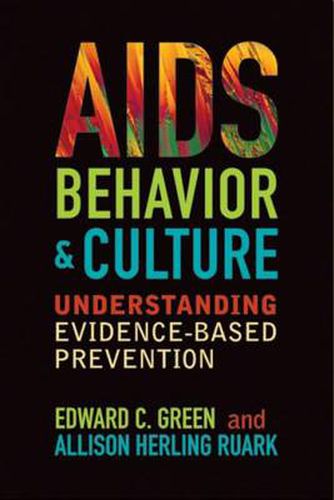Readings Newsletter
Become a Readings Member to make your shopping experience even easier.
Sign in or sign up for free!
You’re not far away from qualifying for FREE standard shipping within Australia
You’ve qualified for FREE standard shipping within Australia
The cart is loading…






AIDS, Behavior, and Culture presents a bold challenge to the prevailing wisdom of the global AIDS industry and offers an alternative framework for understanding what works in HIV prevention. Arguing for a behavior-based approach, Green and Ruark make the case that the most effective programs are those that encourage fundamental behavioral changes such as abstinence, delay of sex, faithfulness, and cessation of injection drug use. Successful programs are locally based, low cost, low tech, innovative, and built on existing cultural structures. In contrast, they argue that anthropologists and public health practitioners focus on counseling, testing, condoms, and treatment, and impose their Western values, culture, and political ideologies in an attempt to liberate non-Western people from sexual repression and homophobia. This provocative book is essential reading for anyone working in HIV/AIDS prevention, and a stimulating introduction to the key controversies and approaches in global health and medical anthropology for students and general readers.
$9.00 standard shipping within Australia
FREE standard shipping within Australia for orders over $100.00
Express & International shipping calculated at checkout
AIDS, Behavior, and Culture presents a bold challenge to the prevailing wisdom of the global AIDS industry and offers an alternative framework for understanding what works in HIV prevention. Arguing for a behavior-based approach, Green and Ruark make the case that the most effective programs are those that encourage fundamental behavioral changes such as abstinence, delay of sex, faithfulness, and cessation of injection drug use. Successful programs are locally based, low cost, low tech, innovative, and built on existing cultural structures. In contrast, they argue that anthropologists and public health practitioners focus on counseling, testing, condoms, and treatment, and impose their Western values, culture, and political ideologies in an attempt to liberate non-Western people from sexual repression and homophobia. This provocative book is essential reading for anyone working in HIV/AIDS prevention, and a stimulating introduction to the key controversies and approaches in global health and medical anthropology for students and general readers.